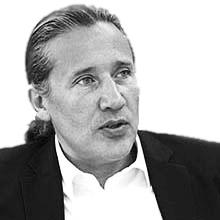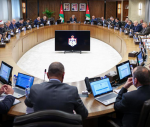The Second International Pledging Conference for Syria is an important milestone in using multilateral action to respond to humanitarian and development needs, and to contribute to efforts for peace.
The conference will be held on January 15, 2014, in Kuwait City and will be chaired by UN Secretary General Ban Ki-moon and hosted by the emir of Kuwait, Sheikh Sabah Al Ahmed Al Jaber Al Sabah.
The success of this event is important for at least two reasons.
Firstly, the conference is an opportunity to secure the resources needed to mitigate, halt and reverse the humanitarian and development catastrophe in Syria.
Secondly, with peace talks for Syria due to begin in Switzerland on January 22, the pledging conference is an opportunity to prepare the ground for a successful peace process and to show that the world is ready to help rebuild Syria and the lives of the millions of Syrians so far affected by this terrible conflict.
The conflict in Syria has produced the largest movement of people since the end of World War II. The loss and harm to life has been disastrous.
The most plausible estimates indicate that at least 100,000 people were killed in less than three years.
The conflict has rolled back human development achievements in 35 years, leaving more than half of the population (12.6 million people) living in poverty, 9.3 million in need of humanitarian and development assistance, and 6.5 million displaced from their homes.
It has also forced 2.3 million people to flee Syria into neighbouring countries. Most of them (80 per cent) do not live in refugee camps but amidst host communities, severely impacting municipal and social services, such as health, education, sanitation, housing and socio-economic infrastructure, as well as social cohesion in those communities.
The protracted nature of the Syria crisis and its impact on its immediate sub-region has galvanised an international consensus that this is not only a political and a humanitarian crisis, but also a development crisis.
The crisis is jeopardising development gains across the region, especially in countries neighbouring Syria, and particularly in Jordan and Lebanon.
As host communities in these countries struggle to share scarce resources and extend hospitality, the massive influx of refugees has exceeded local coping capacities and exacerbated existing pressures and vulnerabilities.
Refugees now make up more than 20 per cent of the population in Lebanon and approximately 10 per cent in Jordan, and the numbers are expected only to rise in 2014, stretching coping capacities in both countries beyond their limits.
On January 15, the international community has an opportunity to come together to make the resources available to mitigate and halt this humanitarian and development crisis.
The UN, with its partners, is making the largest ever single appeal for aid. The appeal is divided into two parts: one for inside Syria (the Syrian Humanitarian Assistance Response Plan, SHARP) and the other for neighbouring countries (the Regional Response Plan, RRP).
The UN is asking for $2.3 billion in the SHARP, to respond to 9.3 million people in need of critical humanitarian aid across the country.
In 2013, SHARP received 70.6 per cent or a net sum of $995.5 million out of total funding requirement of $1.4 billion.
In the RRP for countries surrounding Syria (Iraq, Jordan, Lebanon and Turkey) the UN is asking for $4.2 billion across all sectors to respond to a projected total of 4.1 million refugees in need of critical assistance during 2014.
All told, the financial aid is $6.5 billion.
This conference has an important difference compared to Kuwait I: Jordan and Lebanon come with their respective national responses to the impact of the Syria crisis.
The Lebanon Roadmap and the Jordan National Resilience Plan constitute a critical step in building sustainable responses to cope with the demographic stress generated by the crisis.
Kuwait II is a unique opportunity to bring together the humanitarian-based approach and the resilience-based development that the United Nations Development Group has consistently advocated.
Combined, this means supporting communities in Syria and neighbouring countries to cope with immediate needs emanating from the crisis, to recover from its impacts, and to maintain stability over the longer term.
The conference in Kuwait on January 15 is an investment in joint international action for the sake of the people of Syria and the region.
Making the resources available for the aid that is needed and getting the incentives right for all actors around the negotiating table in Geneva will boost the prospects of Syria finding its way to a positive and stable peace, with an empowered civil society.
Bringing this about will include a central role for the private sector in contributing to recovery and resilient development. This will help, too, the prospects of developing a well-integrated sub-regional economy that positively links Syria with all its neighbours.
The writer is the sub-regional development coordinator for the Syria crisis at the United Nations Development Programme. He contributed this article to The Jordan Times.













